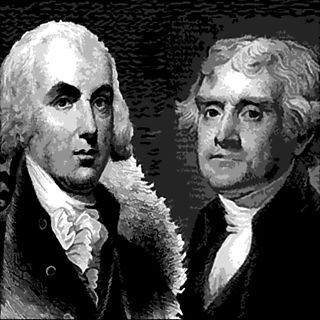In the current issue of Christianity Today, Michael Gerson and Peter Wehner, sometime GOP apparatchiks turned public intellectuals, advance the proposition that evangelicals should acknowledge that they’ve lost the culture war and come to terms with same-sex marriage. In the same issue, the American Conservative‘s Rod Dreher responds by arguing that same-sex marriage is a line in the sand that orthodox Christians cannot afford to cross.
What follows is a slight rewrite of Dreher’s essay for a journal we’ll call Christianity Yesterday, as if by an Episcopal priest addressing the American public after the U.S. Constitution has been ratified. Where Dreher is contradicting Gerson and Wehner, Rev. Whetter contradicts an imagined essay by Madison and Jefferson. Where Dreher cites Philip Rieff’s The Triumph of the Therapeutic (1966), Whetter cites…well, you’ll see.
The U.S. Constitution, of course, took the radical steps of banning both a religious test for federal office and a national religious establishment.
Coming to Terms with a Post-Christian World
Rev. Staff Whetter
Political and legal revolutions always follow cultural revolutions. The American Revolution is just the latest example of the West’s long process of emancipating the individual from all authority outside the sovereign Self.
Madison and Jefferson are surely correct that Christians must learn to live in a world — I would call it a post-Christian world — that disallows religious tests and establishments. And they are right to say that as a general rule, Christians should work with disestablishmentarians and their allies on causes both sides support.
But I see two big problems with their essay. First, it is naïve to believe that if only Christians stop making a big deal about no tests and establishments, disestablishmentarian groups and their allies will partner with us in other areas. Many people on the other side see orthodox Christians as the equivalent of straight-up monarchists.
It’s outrageously unfair, but that’s the world we live in. As long as we hold to traditional biblical teaching on state-sponsored religion, all the winsomeness in the world won’t make them like us.
Second, I sense in Madison and Jefferson’s essay a veiled willingness to compromise on Christian supersessionism. They blame “some Christian leaders” for “associating Christianity primarily with religious exclusivity.” That’s true, to an extent, but the secular world, especially the media, has played a far more consequential role in this distortion.
If the Bible doesn’t say much about state-sponsored religion, what it does say is uncompromising. The Bible is equally uncompromising about idolatry, and more broadly, on man’s relationship to the God of Abraham, Isaac, and Jacob as intrinsic to Judeo-Christianity’s theological anthropology. To disallow public support for religion would mean refusing the clear teaching of Scripture not only on religious establishments, but also on religion itself, and even what it means to be fully human.
The moral philosopher Edmund Burke, in his new book Reflections on the Revolution in France, says that “the consecration of the state by a state religious establishment” is necessary to secure human freedom. Embracing a state religion, and ensuring that the independent conscience does not undermine public morality, is part of the “positive citizenship” of Christian life.
Today, Burke says, we live in an Enlightenment culture in which we have ceased to be religious, and have instead become libertarian. Therefore, individual fulfillment is our goal. “Religious man is born for the common good,” Burke holds. “Libertarian man is born for himself alone.”
Christians who think standing firm on traditional social order is ancillary to the gospel, and even harmful to its spread, may mean well. But in accommodating the Spirit of the Age, they surrender something more essential than they realize.
I agree with Madison and Jefferson that traditional Christians have lost the culture war. I agree that we need a “dose of realism” about that. And I agree that offering healing is more important than offering judgment.
But authentic healing requires judgment about what health looks like. And that means we must have a standard and a model for human wholeness. For Christians, that model is found in the Bible…






